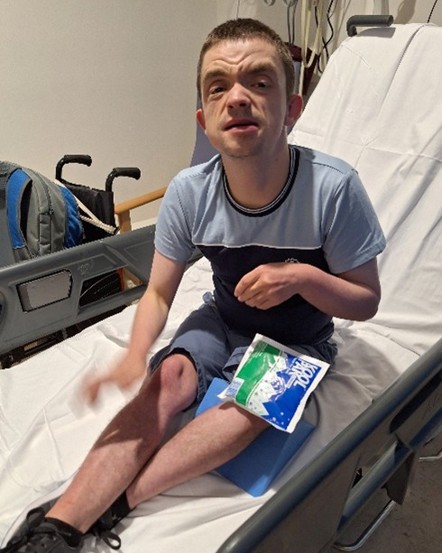When You Notice That You’re Different

Jennifer Arnold
I’m passionate about raising awareness about disability issues through education and outreach. When I’m not wearing my writer hat, I’m usually trying ...
It’s a question that’s on the minds of many parents of kids with special needs; “When will my child know they’re different?”
We worry about if and when they’ll notice, what they’ll say, and most importantly, how we’ll handle it.
Our moment came recently when my youngest son, Chance, randomly stated, “I have a trach. I’m different.”
Chance is almost ten years old and has had his tracheostomy tube since he was two days old.
He doesn’t know life without it.
Although he’s pointed out in the past that he has a trach (to us, to his teachers, to strangers in the waiting room at the doctor’s office), this was the first time he vocalized understanding that it made him different from other people.
I asked him what he thought that meant, and he just kind of shrugged. I explained that being different is cool and that he has something very few people have.
I have way more experience explaining his differences to other kids and emphasizing that they probably have more similarities and things in common than they do differences.
Still, this time there was no one else to compare to.
He didn’t seem upset about the fact that he is the only kid he knows with a trach, and I braced myself before I asked him if anyone has ever said something unkind about it.
Realistically I know the possibility of him being bullied at some point about his disability is high, but it still stings to hear.
Luckily, he couldn’t seem to remember anything significant.
It’s distressing to parents of kids like mine to hear of people making fun of their differences because we just want so badly for everyone else to see what we do and for them to be accepted for who they are.
We don’t want our kids to be known as or referred to as “the kid with the trach,” “the kid with the feeding tube” or “the kid with the wheelchair” because even though those things are part of who they are, they’re not all that they are.


